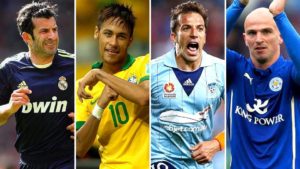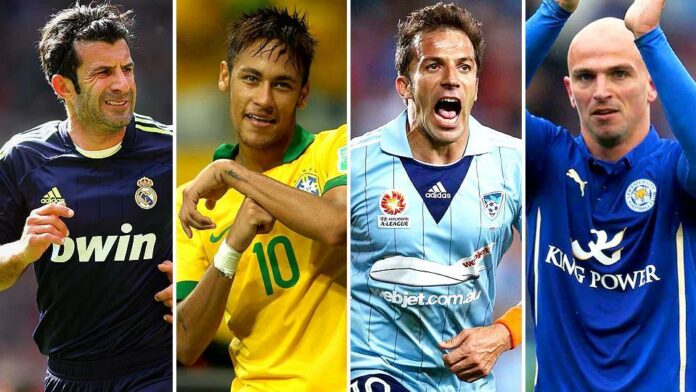Updated: 7:41am – The FIFA U-17 World Cup has always been a breeding ground for future superstars. The likes of Luis Figo, Alessandro del Piero, Francesco Totti, Ronaldinho, Neymar and Toni Kroos first caught international attention at the age-group World Cup and this edition in India is bound to churn out a few more for the future.
The Fifa Under-17 World Cup is a window to witness football brilliance really early. Most of the current and former legends of the game took their first steps towards dizzying heights of fame in this global tournament. Players such as Neymar, Xavi Hernandez, Iker Casillas, Alessandro Del Piero, Luis Figo have all featured in previous Under-17 World Cups for their respective national teams.
As the 2017 edition comes to India, it would be an opportunity to witness talented youngsters, who could one day become stars. Here, we look back at some of the top players who performed at the U-17 World Cup and then made it big at the senior level.
1985 – China: Marcel Witeczek (GER)
This attacking midfielder won the golden boot for scoring eight goals in six matches as Germany finished runners-up. He also won the golden boot at the 1987 U-20 World Cup, where Germany again finished runners-up. He went on to play for German giants Bayern Munich and won one UEFA Cup and two German Leagues with them.
1987 – Canada: Mirdjalal Kasymov (USSR, then went on to represent UZB)
He scored two goals in six matches as the erstwhile Soviet Union finished champions. He later played for Uzbekistan national team and was also their coach twice. He won the 1994 Asian Games as an Uzbekistan player and was named the best midfielder. He is the second Asian after South Korean Cha Bum-Kun to score in UEFA competitions. In the 1995-96 UEFA Cup, he scored for Russian club Alania against Liverpool.
1989 – Scotland: Luis Figo (POR)
Figo scored two goals in six matches as Portugal went on to finish as the third best team. He went on to become one of the greatest footballers that Portugal has ever produced; a ‘galactico’ at Real Madrid. He was part of the Portuguese golden generation that finished on the fourth spot at the 2006 World Cup and ended runners-up at the Euro 2004. Figo is one of the few players to play both for Real Madrid and Barcelona.
1991 – Italy: Alessandro del Piero (ITA), Juan Veron (ARG)
Del Piero had a forgettable tournament, scoring just one goal in three matches. He, however, went on to become one of the greatest forwards ever and won the FIFA World Cup in 2006. Juan Veron’s Argentina ended up in the third position. Though he scored just one goal, he would later go on to play for top European clubs like Manchester United, Chelsea, Inter Milan and Lazio.
1993 – Japan: Francesco Totti (ITA), Nwankwo Kanu (NGR), Hidetoshi Nakata (JPN)
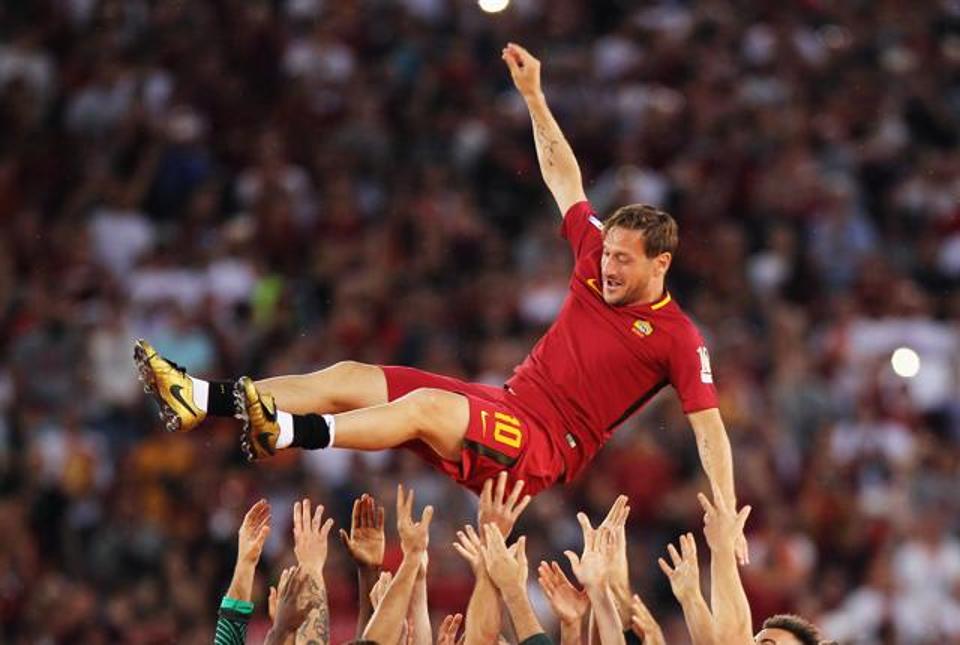
1995 – Ecuador: Esteban Cambiasso (ARG), Julio Cesar (BRA)
Cambiasso was instrumental as Argentina finished third. Cesar was under the goal as Brazil went on to play the final, where they lost to Ghana. Cambiasso later won the UEFA Champions League with Inter Milan and also represented his country at the 2006 World Cup. Cambiasso had Cesar by his side when Inter won the Champions League. Cesar played in 2006, 2010 and 2014 World Cups for Brazil.
1997 – Egypt: Ronaldinho (BRA), Iker Casillas (ESP), Xavi Hernandez (ESP)
Ronaldinho scored two goals in six matches as Brazil went on to become the champions. Casillas and Xavi helped Spain perform well but they could only finish in third position. Ronaldinho also won the World Cup in 2002 and has a Ballon d ‘or. Casillas was the captain of Spanish 2010 World Cup winning squad, while Xavi its nerve-centre. Casillas also represented Real Madrid in 510 matches in 16 years and Xavi the midfield maestro at Barcelona.
1999 – New Zealand: Landon Donovan (USA)
Donovan was instrumental in the USA finishing fourth. He scored three goals in six matches and was the winner of Golden Ball. He prospered for the senior team too. Donovan was part of the US team that reached 2002 World Cup quarter-finals, where he received the Best Young Player Award. He is the second-most-capped player of his country (157). He is also tied with Clint Dempsey as all-time leading scorer for USA (57).
2001 – Trinidad and Tobago: Carlos Tevez (ARG), Fernando Torres (ESP), Andres Iniesta (ESP), Pablo Zabaleta (ARG)
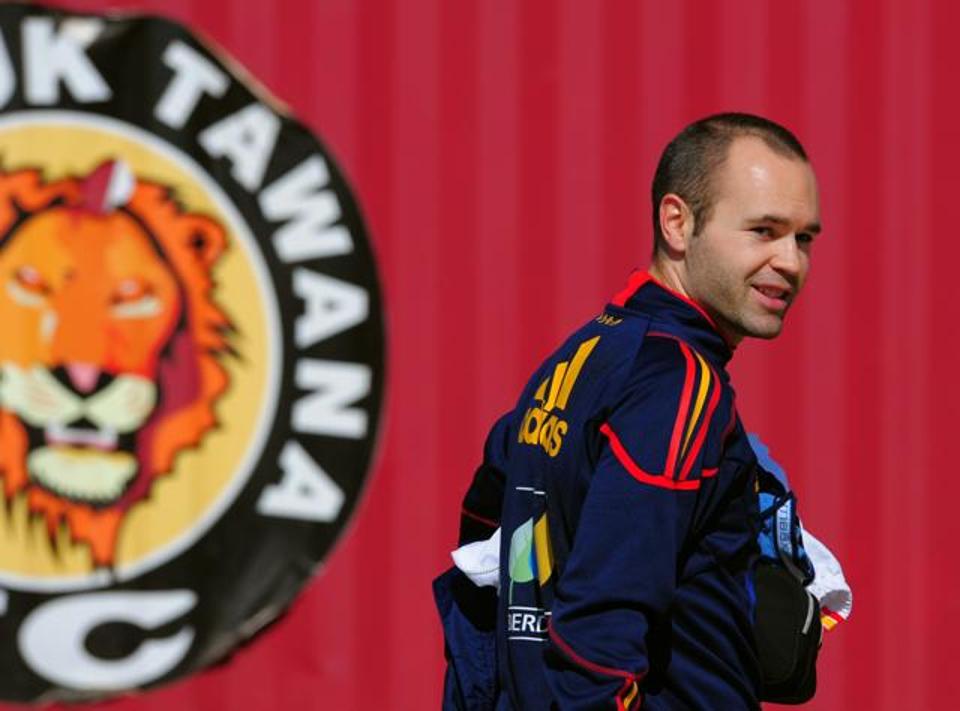
2003 – Finland: Cesc Fabregas (ESP), David Silva (ESP), John Obi Mikel (NGR)
Fabregas top-scored with five goals for Spain to win the Golden Boot and David Silva scored three goals. Courtesy their efforts, Spain finished runners-up to Brazil. Both went on to win the 2010 World Cup, 2008 and 2012 Euros. Mikel scored only one goal as Nigeria went out of the group stage. He went on to play for Chelsea from 2006 to 2017 and won three Premier League titles. He also won a Champions League with Chelsea.
2005 – Peru: Marcelo (BRA), Giovani Dos Santos (MEX), Carlos Vela (MEX)
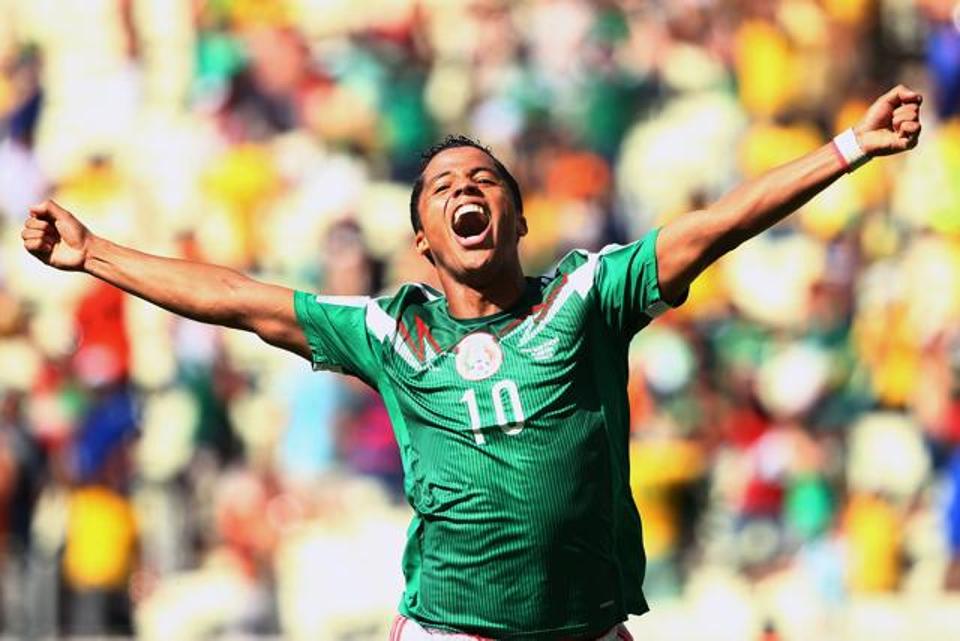
2007 – South Korea: Toni Kroos (GER), James Rodriguez (COL), Eden Hazard (BEL)
Kroos won the Golden Ball award, scoring five goals in six matches. He helped Germany finish as runner-up. He later went on to play for the Germany team that reached 2010 World Cup and UEFA Euro 2012 semi-finals. He won the 2014 World Cup also. Rodriguez though could not score a goal as Colombia went out in the second round. But in the 2014 finals, Rodriguez won the Golden Boot. As for Hazard, he did not have a major impact as Belgium were knocked out from the from group stages. He, however, flourished later for French club Lille and helped Chelsea win English Premier League twice. He was the heart of the Belgian side that finished as quarter-finalists at the 201 World Cup.
2009 – Nigeria: Neymar (BRA), Isco (ESP), Mario Goetze (GER), Alvaro Morata (ESP), Shkodran Mustafi (GER), Koke (ESP), Granit Xhaka (SUI), Phillippe Coutinho (BRA)
The present football scenario is headlined by the boys of this batch. Neymar, costliest football player ever, however, scored only one goal in three matches and Brazil went out in the first stage. That team also included Coutinho, who did not score any goal. Goetze and Mustafi failed to take Germany beyond the second round in the U17 competition, however, they later went on to win the 2014 World Cup. Arsenal player Xhaka had his share of fame at a young age as Switzerland were crowned U-17 champions.
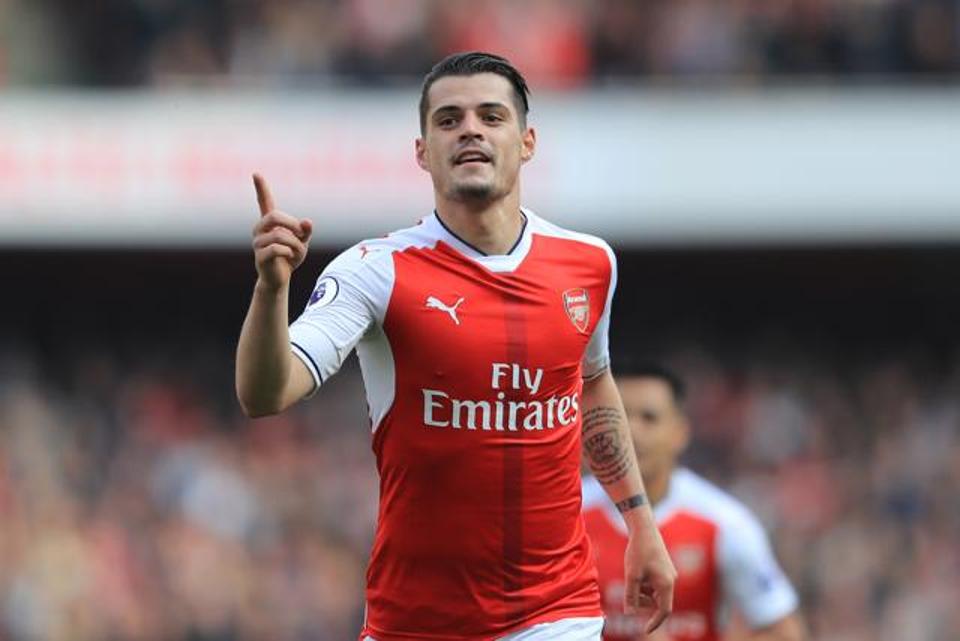
As for the Spanish trio Isco, Morata and Koke, their team finished at the third place. Isco and Morata have been integral part of Real Madrid before Morata switched to Juventus and is currently playing for Chelsea.
2011 – Mexico: Raheem Sterling (ENG), Memphis Depay (NED)
Sterling played four matches in the tournament and scored one goal as England lost to Germany in the quarter-finals. Depay’s Netherlands went out in the group stages. Sterling is now a regular in the England senior team and plays for Manchester City. Depay, considered a fine young talent, went on to play for Manchester United and now plays for French club Lyon.
2013 – UAE: Kelechi Iheanacho (NGR)
Nigeria won the tournament and Iheanacho won the Golden Ball award for scoring six goals in seven matches He was part of Manchester City for two seasons and now plays for Leicester City.
(Note: the first three editions 1985, ’87, ’89 were U-16 events)
-HT
